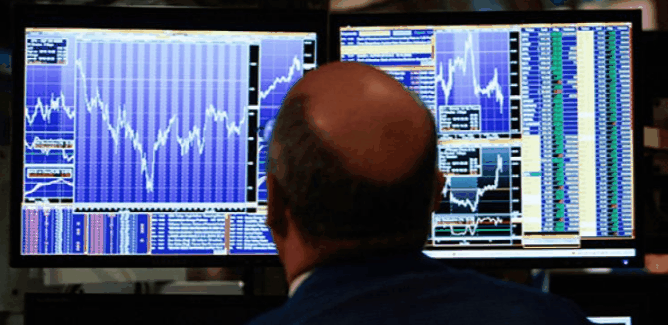- The Government has presented the budgets for 2018, but without the necessary support
- The executive has also raised four tenths, up to 2.7%, the forecast for GDP

The Ibex 35 has rebounded 0.99% to 9,473.60 points, driven throughout the session by the strong gains recorded on Monday by Wall Street, higher than 3% in the case of the Nasdaq technology index, after plummeting 6% last week. In any case, purchases in Europe are still more moderate than in the US, although the German Dax 30 and the British FTSE 100 have risen 1.5%. The Spanish index has reduced its annual fall to 5.6%.
- 11.473,900
- 0,33%
Among the most bullish values of the day, Red Eléctrica (+ 2.59%) led the purchases, followed by Cellnex (+ 2.4%), Acerinox (+ 2.29%), Endesa (+ 2.18%) , Enagás (+ 2.03%), Grifols (+ 2.02%), Telefónica (+ 1.64%) and Inditex (+ 1.62%).
Other large securities such as Repsol (+ 1.16%), Iberdrola (+ 1%), Aena (+ 0.9%), Santander (+ 0.75%) and BBVA (+ 0.45%) have also recorded gains , although the banking sector continues clearly off pace as in recent weeks.
In the negative values in the Ibex, are very few values: Siemens Gamesa has dropped 2.63%, followed by Sabadell (-0.3%), and Indra (-0.18%).
In the main board, excellent performance by Biosearch (+ 23%), Ezentis (+ 10%) and Reig Jofre (+ 7%), but bad days for Nyesa (-12%) and Duro Felguera (-3%).
WALL STREET FARES BETTER
US investors aggressively bought on Monday the "fundamental excuse" that trade tensions between China and the US can be solved. However, the market fund is still dominated by volatility, which has come to stay in 2018 and complicate life for investors, after a placid 2017.
"It remains a mystery why the US markets are holding while European markets have lagged behind in recent weeks," said Michael Hewson, chief analyst at CMC Markets in London.
"One reason may be that, while US markets are benefiting from recent fiscal stimulus measures, Europe's economy is receding at a time when the ECB is beginning to 'cut gas.' Smoother PMI data. Last week could also be the beginning of possible 'micro-cracks' in the history of European growth, which has seen a slight weakening in activity since the end of last year, "adds this expert.
As for the specific agenda of this Tuesday, inflation in Spain has rebounded to 1.2% in March. And the confidence indicators of the Euro Zone in March, for their part, have generally been lower than expected.
BUDGETS AND FORECASTS
Although the main protagonist of the day has been the draft General Budgets of the States (PGE), presented by the Executive of Mariano Rajoy without having yet the necessary support for approval. Citizens have already given their approval, but the Basque Nationalists of the PNV have once again repeated that, while the 155th in force in Catalonia continues, they will not negotiate the accounts.
In addition, the Government has raised by four tenths the growth forecast for Spain in 2018, to 2.7%. This increase is due to three factors: the lower political uncertainty, the favorable evolution of the investment and the good economic situation of the Euro Zone.
Noticias relacionadas

Las tecnológicas empujan a Wall Street hasta su mayor subida desde agosto de 2015

Trump vuelve a aplicar su estrategia 'estrella': pone a China en situación límite para negociar con ventaja

Facebook cierra en verde este lunes, aunque se desploma un 13,5% en seis sesiones


